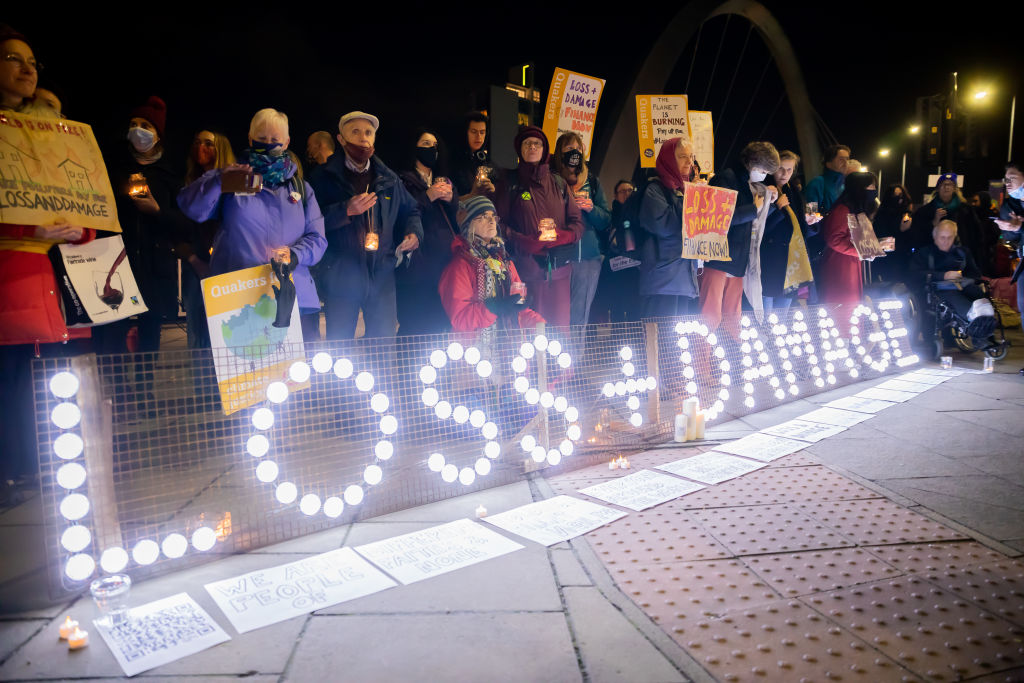
Negotiators representing dozens of developing nations left Germany empty-handed as rich countries blocked their attempts to secure compensation for the damage caused by climate change.
The talks that ended in Bonn on Thursday are a key item on the annual climate agenda, setting the stage for the United Nations-sponsored Conference of Parties, or COP, in November. For two weeks, negotiators worked to translate into action the big commitments made at COP26 in Glasgow last year in preparation for COP27 in Egypt later this year.
“Developed countries don’t want to pay a cent,” said Saleemul Huq, director at nonprofit International Centre for Climate Change and Development in Bangladesh. “They’re giving us dialog and that means talk, talk, talk with no action—that’s not acceptable anymore.”
Developing countries failed to put the issue — known in climate diplomacy jargon as “loss and damage” — on the official agenda for COP27. While technical, the step is crucial to make sure discussions happen at the highest level regarding climate financing for poor countries which aren’t responsible for warming the planet but bear the brunt of impacts such as floods and heat waves.
“Over the past two weeks, we have worked with all our might to make progress,” said Jennifer Morgan, a deputy German foreign minister and former head of Greenpeace International. “In the end we didn’t get as far as we wanted—we as the federal government also wanted more.”
The EU and other developed countries recognize the urgency of the issue of loss and damage and have committed to strengthening existing arrangements, the EU Commission said in a statement on Friday. The bloc’s executive body called on rich nations to deliver on the commitments they’ve made on climate finance.
The debate around loss and damage has been ongoing since the United Nations Framework Convention on Climate Change was approved in 1992. While rich countries have recognized that global warming leads to disasters that are impossible to adapt to, they’ve never agreed that it warrants financial compensation. The issue is expected to take center stage at COP27 in Sharm el-Sheikh, which will be the first in an African country in over a decade.
“Major political decisions, notably on finance for loss and damage, need to be taken at COP27,” UNFCCC Executive Secretary Patricia Espinosa said in a statement. “We now need to ensure that Sharm el-Sheikh will truly be the place where important promises of the Paris Agreement are turned into reality.”
Delegates at the Bonn talks, which are designed to focus on technical issues, ran out of negotiating room and will now need senior members of their governments to inject political ambition back in, said Alex Scott, program leader for climate diplomacy and geopolitics at think tank E3G. There are plenty of international gatherings between now and November to do that, including the Commonwealth Heads of Government Meeting in Rwanda and G-7 summit in Germany later this month. But if loss and damage doesn’t make it to the official COP27 agenda, the issue will stall and be delayed again, Scott said.
“Perhaps the most decisive outcome from these talks is that developed countries now realize that the chorus calling for solutions to loss and damage is only getting louder,” said David Waskow, director of international climate action at the World Resources Institute. “Now the pressure is on for leaders to pick up the slack and use upcoming diplomatic gatherings to deliver the political momentum that is needed ahead of COP27.”
As officials gathered in Bonn, nonprofit organizations demonstrated in front of the venue and organized protests in corridors outside the meeting rooms. Activists will now take these protests to their home countries and to put pressure on their political leaders over the next few months.
“We’re not going to let them get away with this,” Huq said. “We’ll keep on pressuring and they won’t be able to refuse giving any money forever.”
One issue where talks advanced was in the implementation of Article 6 of the Paris Agreement, which proposes carbon market mechanisms to help reduce greenhouse gas emissions. Delegations hammered out a compromise text which will be taken up again in COP27 for further negotiation.
But that was little comfort for those pushing for greater action on loss and damage. “At this point in time, there’s no movement,” said Tasneem Essop, executive director at nonprofit Climate Action Network International. “We will leave here having to go back to people saying we have not got any outcomes that will address your needs.”
—With assistance from Iain Rogers and Ewa Krukowska.
More Must-Reads from TIME
- L.A. Fires Show Reality of 1.5°C of Warming
- Behind the Scenes of The White Lotus Season Three
- How Trump 2.0 Is Already Sowing Confusion
- Bad Bunny On Heartbreak and New Album
- How to Get Better at Doing Things Alone
- We’re Lucky to Have Been Alive in the Age of David Lynch
- The Motivational Trick That Makes You Exercise Harder
- Column: All Those Presidential Pardons Give Mercy a Bad Name
Contact us at letters@time.com